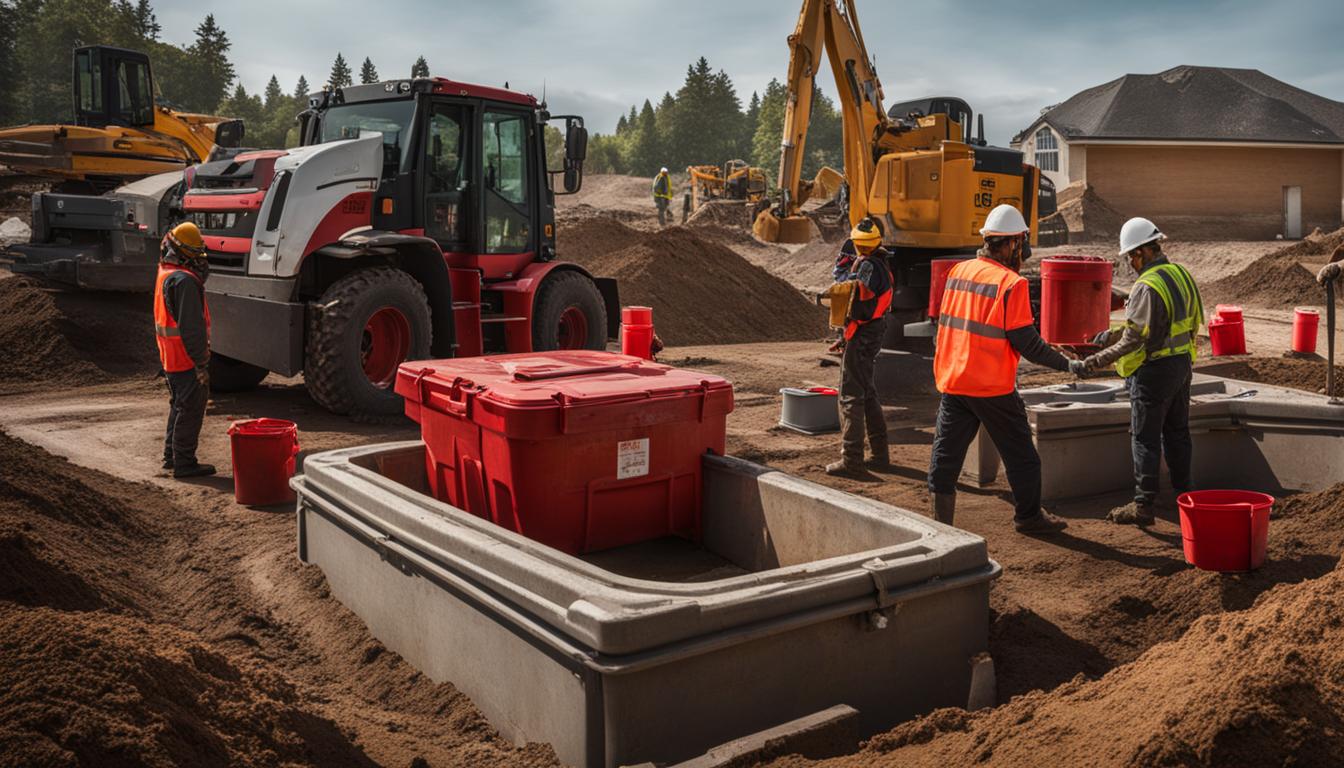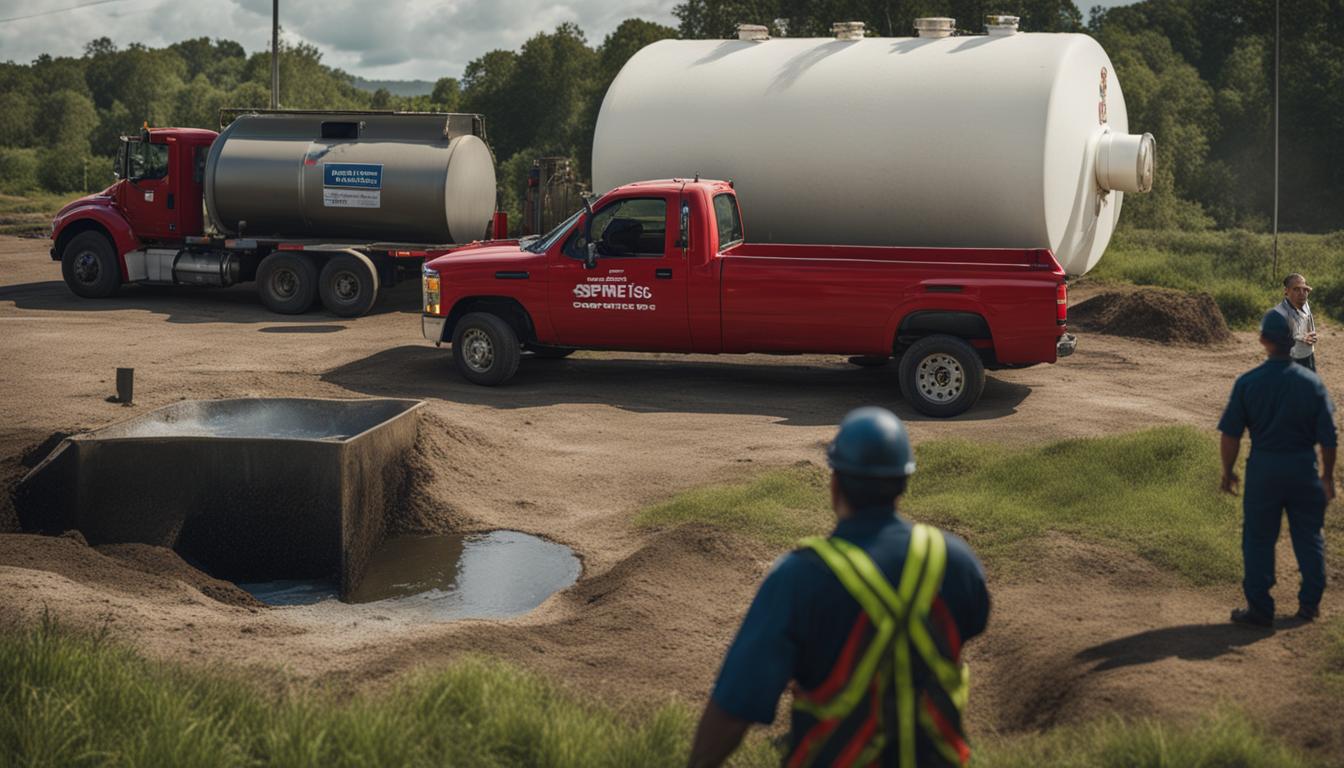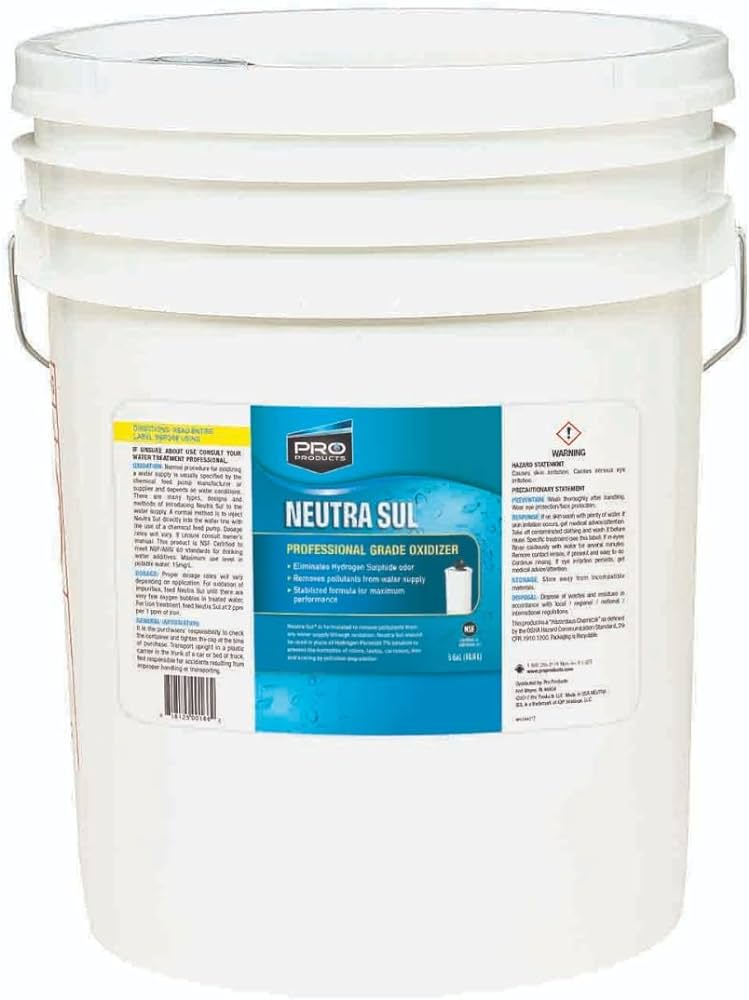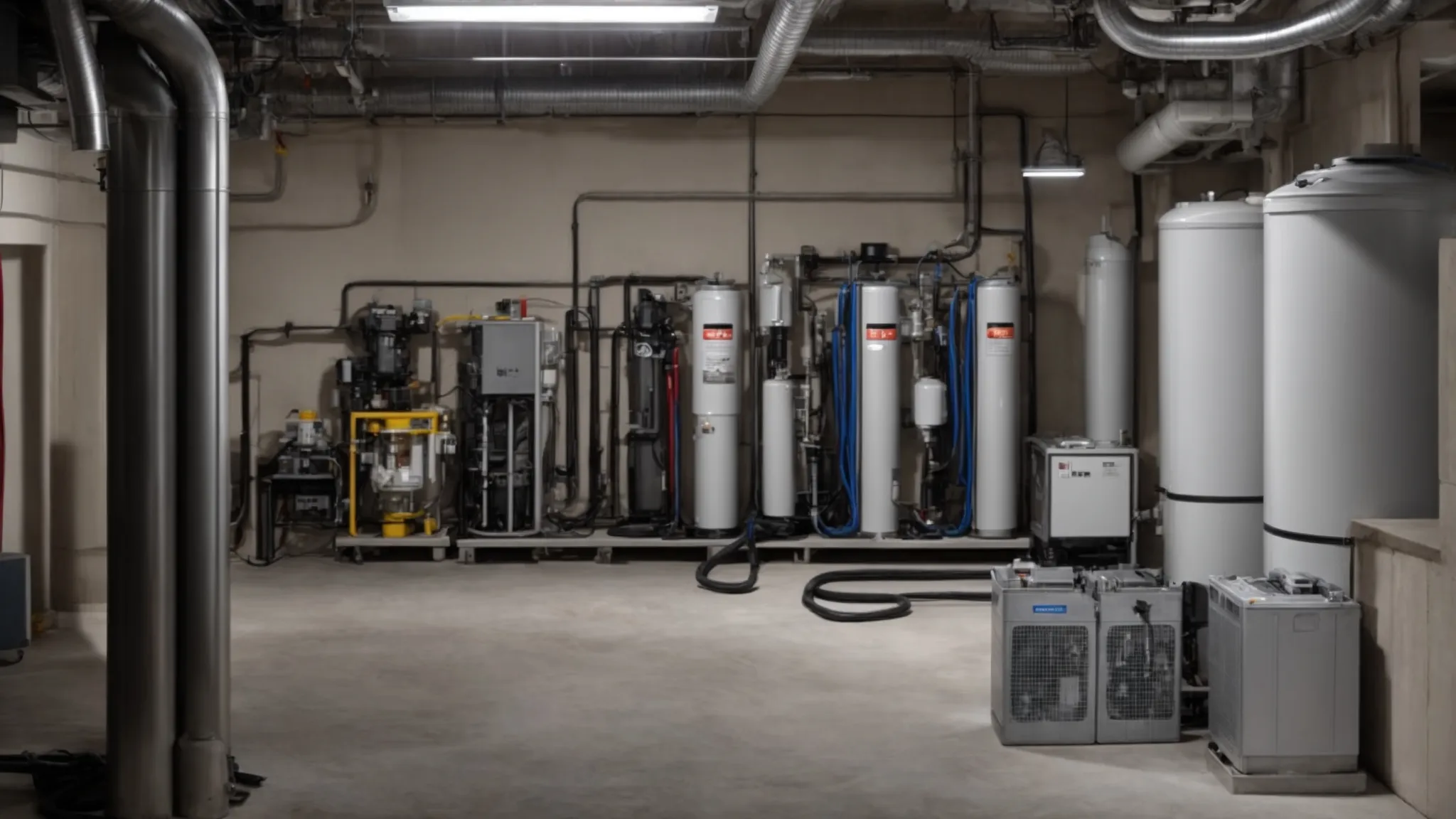Septic system failure can be a stressful and costly issue to deal with. When faced with this situation, it is crucial to have access to emergency solutions that can quickly restore your system to full functionality. At [company name], we understand the urgency of septic system failure and offer various emergency solutions to address this issue promptly.
In this section, we will explore common causes and signs of septic system failure, temporary solutions, and preventative measures to avoid future failures. We will also discuss the importance of regular maintenance to ensure the longevity and functionality of your septic system.
Key Takeaways
- Emergency solutions are crucial in addressing septic system failure.
- Understanding common causes and signs of septic system failure can help identify the urgency of the situation.
- Temporary solutions can help alleviate immediate problems, but urgent septic system repairs may be necessary.
- Regular maintenance is essential to the longevity and functionality of your septic system.
- Preventative measures can help avoid future septic system failures.
Understanding Septic System Failure
As septic system failure can cause significant health hazards and costly damages, it is essential to understand the common causes and signs of this issue. By identifying the problem early on, you can take prompt action and prevent further harm.
Causes of Septic System Failure
Septic system failure can occur due to various reasons, including:
| Causes of Septic System Failure | Effects |
|---|---|
| Neglected maintenance | Sluggish drainage, unpleasant odors, and system backups |
| Tree roots intruding on system components | Cracked pipes, septic system backups, and slow drainage |
| Excessive water usage | System overloading, draining into the leach field, and inefficient water usage |
| Flushing non-biodegradable materials | Blockages, damage to the system, and significant backups |
Signs of Septic System Failure
It is crucial to be vigilant and recognize the signs of potential septic system failure early on. These signs may include:
- Slow draining of sinks, showers, tubs, and other plumbing fixtures
- Unpleasant odors emanating from the drains
- Wet, spongy, or lush areas in the yard surrounding the septic system
- Gurgling sounds coming from the plumbing system
- Backups of wastewater into your home or commercial property
It is crucial to note that in some cases, septic system failure may not display any visible signs. Regular maintenance and inspections can help detect issues early on before they escalate into a more severe problem.
At our company, we understand the importance of swift and effective septic system solutions. Our team of experts is well-equipped to identify the cause of the problem and provide fast and efficient solutions. In the following sections, we will discuss the emergency solutions and preventative measures available to maintain the health of your septic system.
Immediate Septic System Help
Septic system failures can cause significant damage to your property and pose health risks to you and your family. If you notice signs of septic system failure, taking immediate action is crucial. Here are the steps you can take:
- Turn off all water sources: This includes faucets, showers, and toilets. By doing so, you can prevent further damage to your septic system and avoid overflowing.
- Limit water usage: Until the issue is resolved, avoid using water as much as possible. This includes washing machines, dishwashers, and watering the lawn.
- Call for professional help: Contact us for emergency septic system services. Our team of skilled technicians will be dispatched to your location promptly to assess the situation and provide immediate assistance.
- Avoid DIY: Attempting to fix the issue on your own can worsen the problem and cause additional damage. Leave it to the professionals to ensure that your septic system is restored to full functionality.
Note: Septic system failures can cause foul odors and potentially hazardous conditions. It is best to avoid the affected area until professional help arrives.
By following these steps, you can minimize potential damages to your property and avoid health risks. Our emergency septic system services ensure that you have access to immediate help whenever you need it. Contact us today to learn more about our services and how we can assist you.
Urgent Septic System Repair Services
If a septic system failure is beyond temporary fixes, urgent professional repair assistance is required. Our team of skilled technicians specializes in urgent septic system repair services to restore functionality as quickly as possible.
We understand the urgency of septic system failures and offer prompt dispatch of our skilled technicians to your location. Our technicians arrive equipped with the necessary tools and expertise to diagnose and repair the issue efficiently and effectively.
“When your septic system fails, it’s vital to act quickly. Our urgent septic system repair services ensure that you get the professional help you need as soon as possible.”
Our emergency services are available 24/7, including holidays and weekends, to provide comprehensive repair solutions for any septic system failure. We pride ourselves on our efficiency and professionalism, ensuring that your septic system is back to full functionality in no time.
Temporary Fixes for Septic System Failure
When faced with a septic system failure, it is essential to take immediate action to minimize the potential damage and health risks. In emergency situations, temporary fixes can be implemented to alleviate the immediate problems caused by septic system failure.
1. Reduce Water Usage
Reducing water usage is an effective temporary solution to prevent further issues in a failing septic system. By minimizing water usage, the strain on the system is reduced, allowing time for a professional to arrive and address the root cause of the problem. This could include taking shorter showers, not doing laundry, and avoiding running the dishwasher.
2. Avoid Pouring Chemicals Down Drains
Chemicals poured down drains can harm the septic system and speed up the deterioration process. Avoid pouring harsh chemicals down the drain, including bleach, drain cleaner, and other cleaning products. Instead, use environmentally friendly alternatives or opt for natural cleaning methods that are gentle on the septic system.
3. Monitor the System
It is important to monitor the septic system closely during a failure. Keep an eye out for clogs, leaks, and odors. If any unusual changes occur, it is essential to take note and inform a professional septic service immediately.
4. Pump the Septic Tank
Pumping the septic tank is a temporary fix that can help alleviate the immediate issues caused by septic system failure. It is important to note that pumping the tank does not fix the root cause of the problem but can provide temporary relief. It is essential to contact a professional to address the underlying issue.
These temporary fixes can be helpful in emergency situations, but it is essential to keep in mind that they should not be used as a long-term solution. It is crucial to contact a professional septic service provider to address the root cause of the problem and prevent future issues.
Emergency Septic Service Availability
In times of emergency, having access to reliable septic services is crucial. At our company name, we understand the urgency of septic system failures and are proud to offer emergency septic service availability to our clients. Our team of highly skilled technicians is available 24/7 to provide immediate assistance to our clients.
With our emergency services, you can rest assured that we will quickly assess the situation and provide the necessary repair or cleaning services to restore your septic system’s functionality. We have the necessary tools and equipment to handle even the most complex septic system failures, ensuring that your property is safe and free from health hazards.
Our Emergency Septic Services Include:
| Service | Description |
|---|---|
| Inspection and Assessment | We will inspect and assess the cause and extent of the septic system failure to determine the appropriate course of action. |
| Septic System Pumping | We will pump and remove all waste and debris from the septic system to restore its functionality. |
| Repairs and Replacement | If necessary, we will make repairs or replace damaged components to ensure your septic system is functioning properly. |
| Cleaning and Maintenance | After the emergency situation has been resolved, we will clean and maintain your septic system to prevent future failures and ensure its longevity. |
At our company name, we understand that septic system failures can occur at any time, which is why we are committed to providing emergency septic services to our clients. Contact us immediately if you are experiencing a septic system failure, and our team will promptly provide the necessary solutions to restore your septic system’s functionality.
Preventative Measures to Avoid Future Failures
At our company, we believe that the best way to avoid septic system failures is to take preventative measures. By following these measures, you can extend the life of your septic system and save yourself the headache of costly repairs.
Regular Pumping and Maintenance
The most important preventative measure you can take is to schedule regular pumping and maintenance appointments with a professional septic system service provider. Depending on the size of your tank and the number of people in your household, septic tanks should be pumped every three to five years. Regular maintenance can help detect small problems early, preventing them from escalating into more significant failures.
Water Conservation and Management
Conserving water and managing your water usage can help reduce the workload on your septic system. Using low-flow toilets and showers, fixing leaky faucets promptly, and spreading out laundry loads over several days can all help decrease the amount of water your septic system needs to process.
Proper Waste Disposal
Avoid flushing items down the toilet that can clog your system, such as paper towels, feminine hygiene products, or baby wipes. Additionally, avoid pouring grease, oil, or harsh chemicals down the drain, as these can damage your septic system and harm the environment.
Our company recommends creating a list of what can and cannot be flushed or poured down the drain, and posting it near your toilet and sinks as a reminder.
Landscaping Considerations
The location and design of your septic system can also impact its longevity. Avoid planting trees or large bushes near your system, as their roots can damage the pipes. Make sure your system is not located in an area that is prone to flooding or heavy foot traffic, which can cause damage to the system.
Education and Awareness
Finally, educating yourself and your family on the importance of septic system health can go a long way in promoting the longevity of your system. Make sure everyone in your household knows how the system works and understands the dos and don’ts of proper septic system care.
By implementing these preventative measures, you can significantly reduce the risk of future septic system failures and ensure the long-term health of your system.
The Importance of Regular Maintenance
Regular maintenance is crucial for the longevity and functionality of your septic system. Neglecting regular maintenance can result in costly repairs and emergency situations. At [Our Company Name], we stress the significance of scheduling routine inspections and maintenance to avoid emergencies and maintain the health of your septic system.
The Benefits of Regular Maintenance
Scheduling regular maintenance appointments with [Our Company Name] can provide several benefits, including:
- Detecting and addressing minor issues before they become major problems
- Extending the lifespan of your septic system
- Maintaining the functionality of your system
- Preventing costly repairs
- Maintaining the safety and health of your family and community
Regular maintenance can also help to prevent the need for emergency septic system repairs, which can be expensive and inconvenient. By proactively maintaining your septic system, you can save money, time, and stress in the long run.
What Happens During a Maintenance Appointment?
During a maintenance appointment with [Our Company Name], our skilled technicians will:
- Conduct a thorough inspection of your septic system
- Check the levels of scum and sludge in your tank
- Pump your tank, if necessary
- Address any minor issues or concerns
- Provide recommendations for ongoing maintenance
Our technicians are highly trained and experienced, with the knowledge to identify potential issues before they become major problems. By working with us, you can rest assured that your septic system is in good hands.
“Regular maintenance is crucial for the proper functioning of your septic system. By scheduling routine inspections with [Our Company Name], you can avoid costly repairs and emergency situations.”
Don’t wait until it’s too late – schedule your regular maintenance appointment with [Our Company Name] today to ensure the long-term health and functionality of your septic system.
Conclusion
Septic system failure is a serious issue that requires prompt and effective action. By understanding the common causes and signs of septic system failure, you can take immediate steps to minimize damages and health risks. Our urgent septic system repair services and emergency septic service availability guarantee that your septic system will receive expert attention when needed.
While awaiting professional assistance, temporary fixes can provide temporary relief. However, it is important to implement preventative measures to avoid future failures and schedule regular maintenance to ensure the longevity and functionality of your septic system.
At [company name], we are committed to providing emergency solutions for septic system failures and helping our clients maintain the health of their septic systems. Contact us today to learn more about our services and how we can assist you in your time of need.
FAQ
What are the common causes of septic system failure?
Septic system failure can be caused by factors such as excessive water usage, improper maintenance, tree root intrusion, and clogs in the system. It can also occur due to aging infrastructure or soil saturation.
How can I identify if my septic system is failing?
Signs of septic system failure include slow drainage, gurgling sounds in the plumbing, foul odors, sewage backups, and overly green or spongy grass over the drain field. If you notice any of these signs, it is crucial to address the situation promptly.
What immediate actions should I take in case of septic system failure?
If you experience septic system failure, reduce water usage, avoid using the affected plumbing fixtures, and contact a professional septic system technician. Additionally, it is important to keep children and pets away from the affected area to prevent health hazards.
Are there temporary fixes for septic system failure?
While awaiting professional assistance, you can temporarily alleviate the issues caused by septic system failure by avoiding excessive water usage, using chemical treatments to break down waste, and diverting water away from the drain field. However, these are not permanent solutions and professional intervention is still required.
How quickly can I expect professional septic system repair services?
Our urgent septic system repair services aim to dispatch skilled technicians to your location as soon as possible. The response time can vary depending on factors such as your location and the severity of the issue. Rest assured, we prioritize prompt assistance to mitigate damages and restore functionality.
What preventative measures can I take to avoid future septic system failures?
It is important to implement preventative measures such as regular septic system inspections, proper waste disposal practices, conserving water, and avoiding the flushing of non-biodegradable items. Regular maintenance and addressing minor issues promptly can help prevent major failures in the future.
How frequently should I schedule septic system maintenance?
Routine septic system maintenance should be scheduled every 3 to 5 years, depending on factors such as the size of the household and water usage. Regular inspections and pumping help ensure the longevity and optimal functioning of your septic system.




